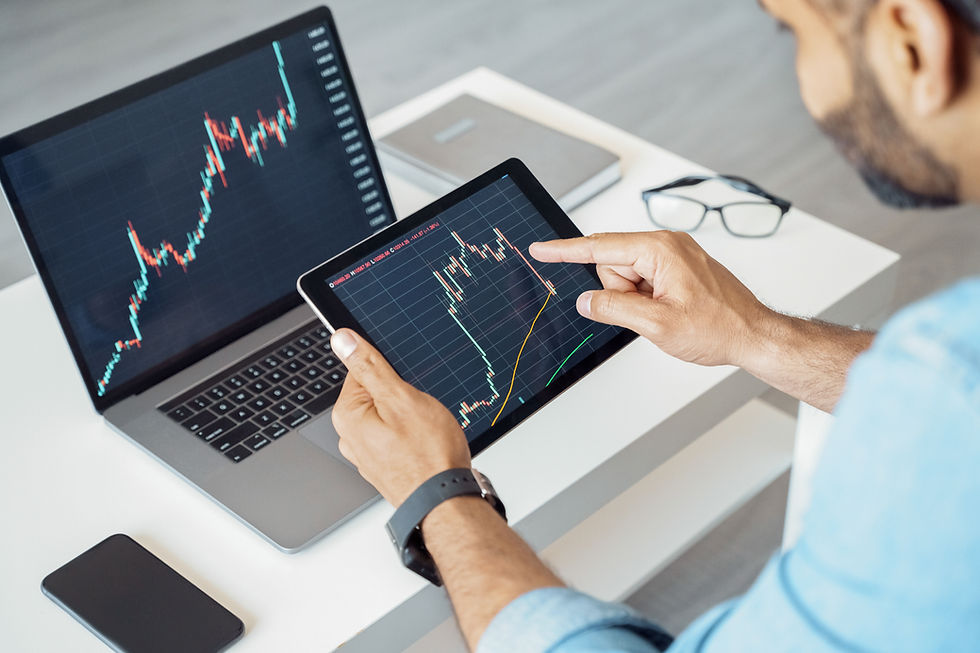The Shift Toward Cashless Societies: Opportunities and Challenges
- Marc Primo

- May 13, 2025
- 3 min read
By Marc Primo Imagine walking through your local market, grabbing a coffee, paying for groceries, and splitting a dinner bill without touching a single coin or banknote—without touching a single coin or banknote. That future isn't coming for millions worldwide—it's already here. The shift toward a cashless society is happening fast, making paying with a tap or a scan easier than ever. Digital payments bring plenty of perks, like convenience, less risk of theft, and easier tracking for businesses and governments.
But there are downsides, too. Not everyone has access to digital tools, and some worry about privacy or what happens if the technology fails.

Why the World Is Moving Away from Cash
Several forces are driving the move away from cash. The rise of smartphones, digital wallets, and easy-to-use payment apps has made paying without money faster and more convenient than ever. The COVID-19 pandemic pushed this shift, as people and businesses turned to digital payments to avoid handling physical money and reduce contact. Technology is now at the heart of how we pay for almost everything, making cashless transactions part of daily life for many.
Governments and financial institutions also see the appeal. Going cashless can reduce costs associated with printing money, improve tax compliance, and help fight crime by making illicit transactions harder to conceal.
In countries like Sweden and South Korea, cash accounts for less than 10% of all transactions. Mobile payment systems like Kenya's M-Pesa have transformed financial access even in developing nations. Australia recently made headlines with discussions about going completely cashless by 2030.
Why More People Are Choosing to Go Cashless
1. It's Just Easier
It's far easier to swipe a card or tap your phone than to count coins and cash. Real payments save time and hassle, whether paying for a cab or hurrying to the grocery store.
2. Smarter Money Tools
Cashless living offers new ways to manage your finances. You can split payments with friends, try new budgeting apps, or even experiment with digital currencies from your phone.
3. Peace of Mind
Not carrying cash means one less thing to worry about if you lose your wallet. Features like fingerprint or face recognition and digital payments add an extra layer of security.
4. Keeping Track Is Simple
Every payment gets recorded, so it's much easier to see where your money goes. This helps you budget and makes it harder for shady activities to slip through the cracks.
The Challenges: Who Could Miss Out?
1. Financial Exclusions
Not everyone is equipped to make digital payments. Many elderly, rural, and low-income people still use cash and cannot access smartphones or bank accounts.
2. Less Privacy
Digital payments result in purchases being tracked. As a result, people may become concerned about how their data may be used and who is monitoring their expenditure.
3. Technical Issues
If there's a power outage, a system crash, or a cyberattack, you might suddenly be unable to pay for what you need. With cash, you never have to worry about your wallet "going offline."
4. Too Much Corporate Power
When most payments go through a handful of big companies, those companies gain much control. They can change rules or fees, and your financial data is in their hands. That can be risky if things go wrong.
Striking the Right Balance
Digital payments make transactions quick and convenient, but they also come with a trade-off: traceability. A digital footprint is created every time you use a card or mobile wallet. This enables businesses and financial institutions to develop comprehensive profiles of your purchasing patterns over time. Naturally, this raises concerns for many people. They begin to wonder how their data is being used, who has access to it, and whether their financial activity is being monitored more closely than they'd like. In a world where data is increasingly valuable, digital payments can leave consumers vulnerable to surveillance and privacy breaches.
Is the World Ready?
Your purchase gets recorded somewhere when you tap your card or phone to pay. Over time, those records add up. Someone, somewhere, can see what you're buying, when you're buying it, and even where you are when you do. It makes some people stop and think. Maybe you don't mind at first, but eventually you start to wonder who's looking at that information—and why. It's not just about convenience anymore. It's about trust, privacy, and whether handing over your data is worth the ease of a quick payment.



Comments